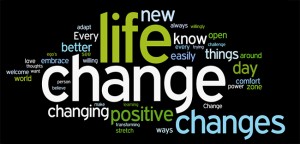It’s about time to tackle a prevalent problem: how people perceive us as leaders. Perception is vital when looking at leadership; what you display at any given time gives people a picture of who you are. Leaders who are in the media face this everyday: whenever they walk out of a conference, when they leader the restroom, even when they awkwardly shift in their seats during a meeting. Perception of leaders can also dwell into the classroom: take for example using your laptop during class or even texting while charging your phone—all while the instructor or guest speaker is speaking. Using your phone during class is rude, openly surfing the net while a professor is speaking is rude as well—and that creates an image for you as a person.
This post is not meant to put people on blast, but to raise awareness that people will always be forming a picture of you as a person at all times—in and out of class. Rudeness is one of the more prevalent ways that people use to view perception of you as a person and creates a persona about you that does not exactly carry positive connotations. So stop using your laptop in class or charging your phone and texting. The point of a class it to engage respectfully when needed and to listen to the time you are there. People are always looking and creating a picture about your character based off of your actions at all times, so as a leader don’t be rude and give a bad image of yourself and the class.



 Posted by rvelasqu
Posted by rvelasqu


